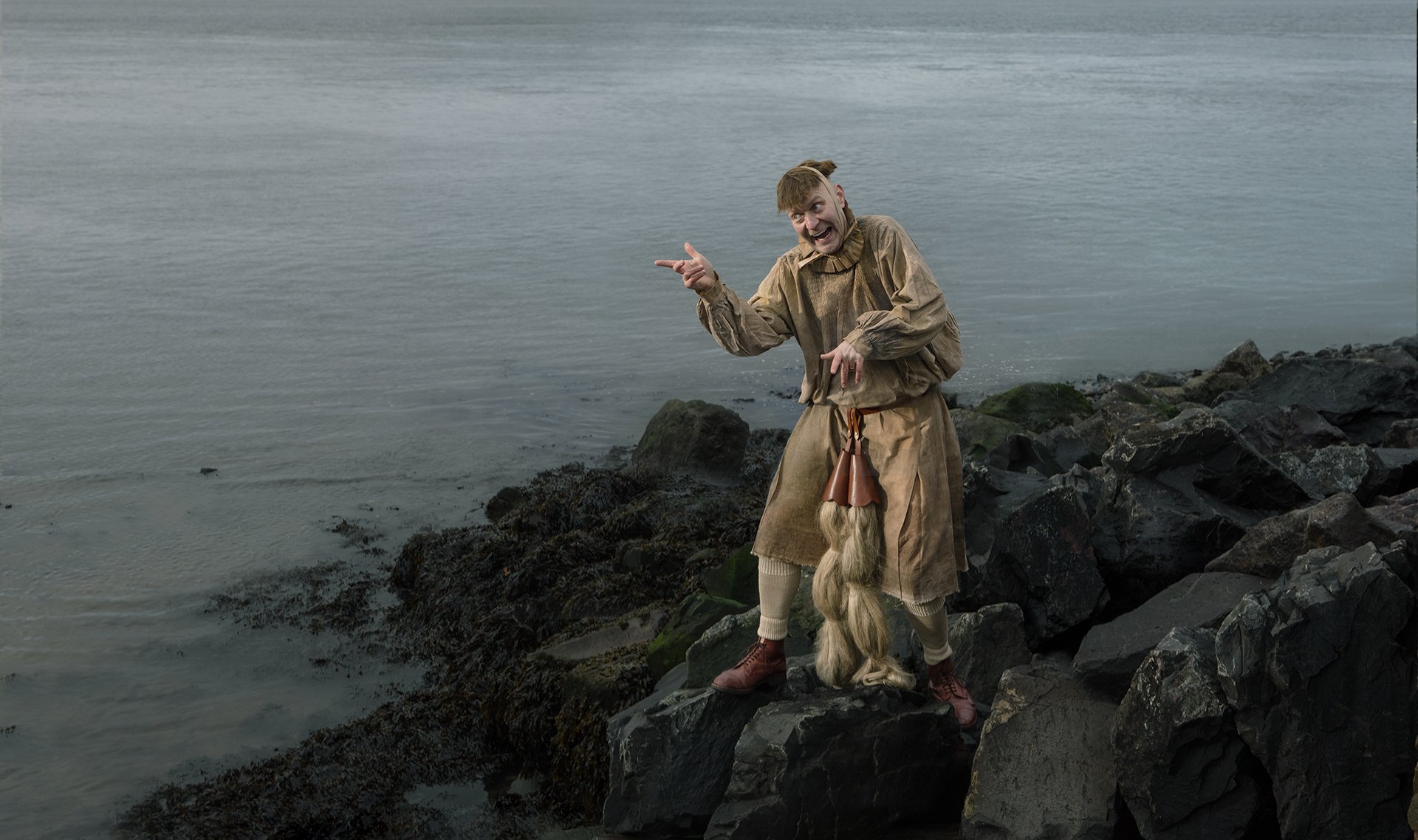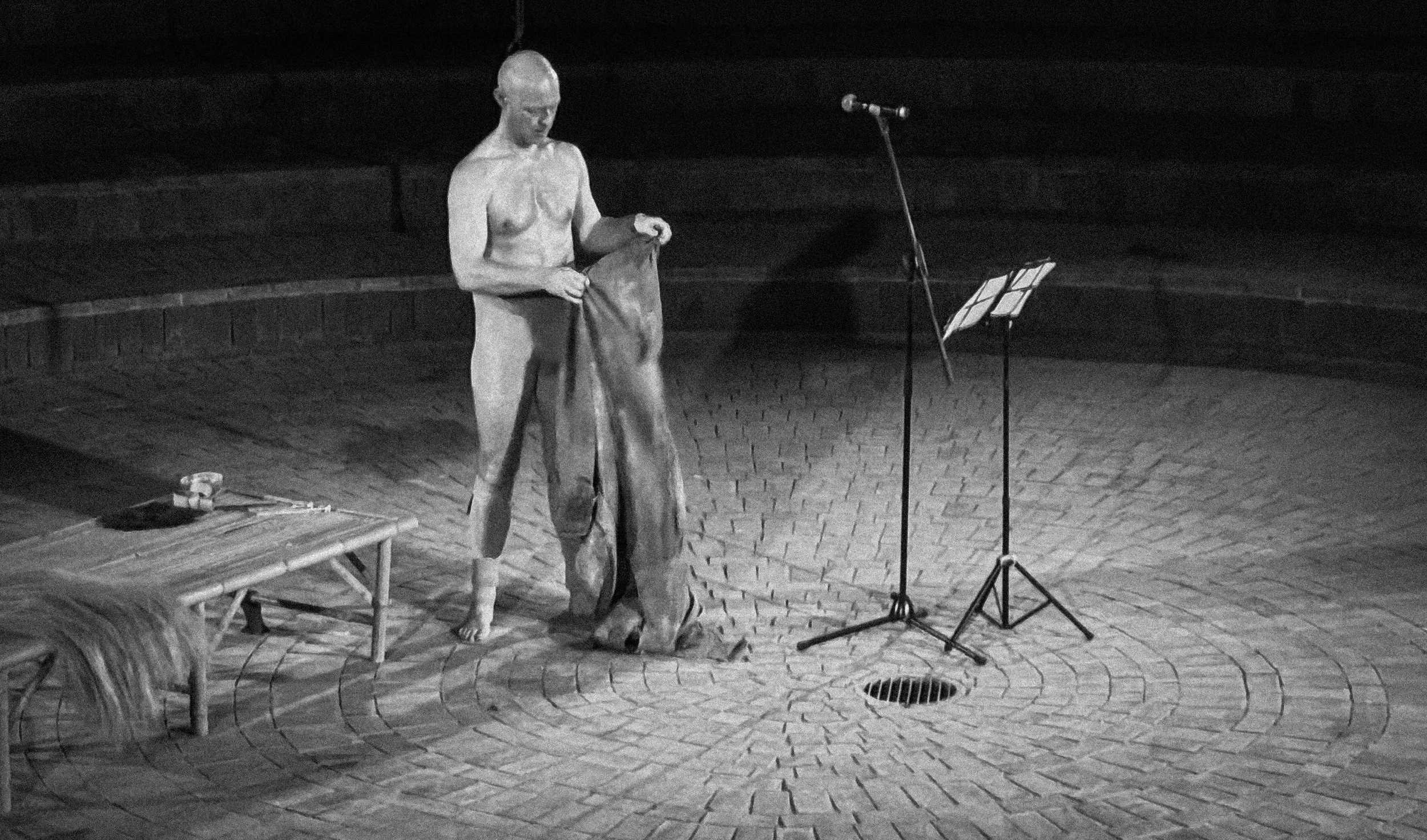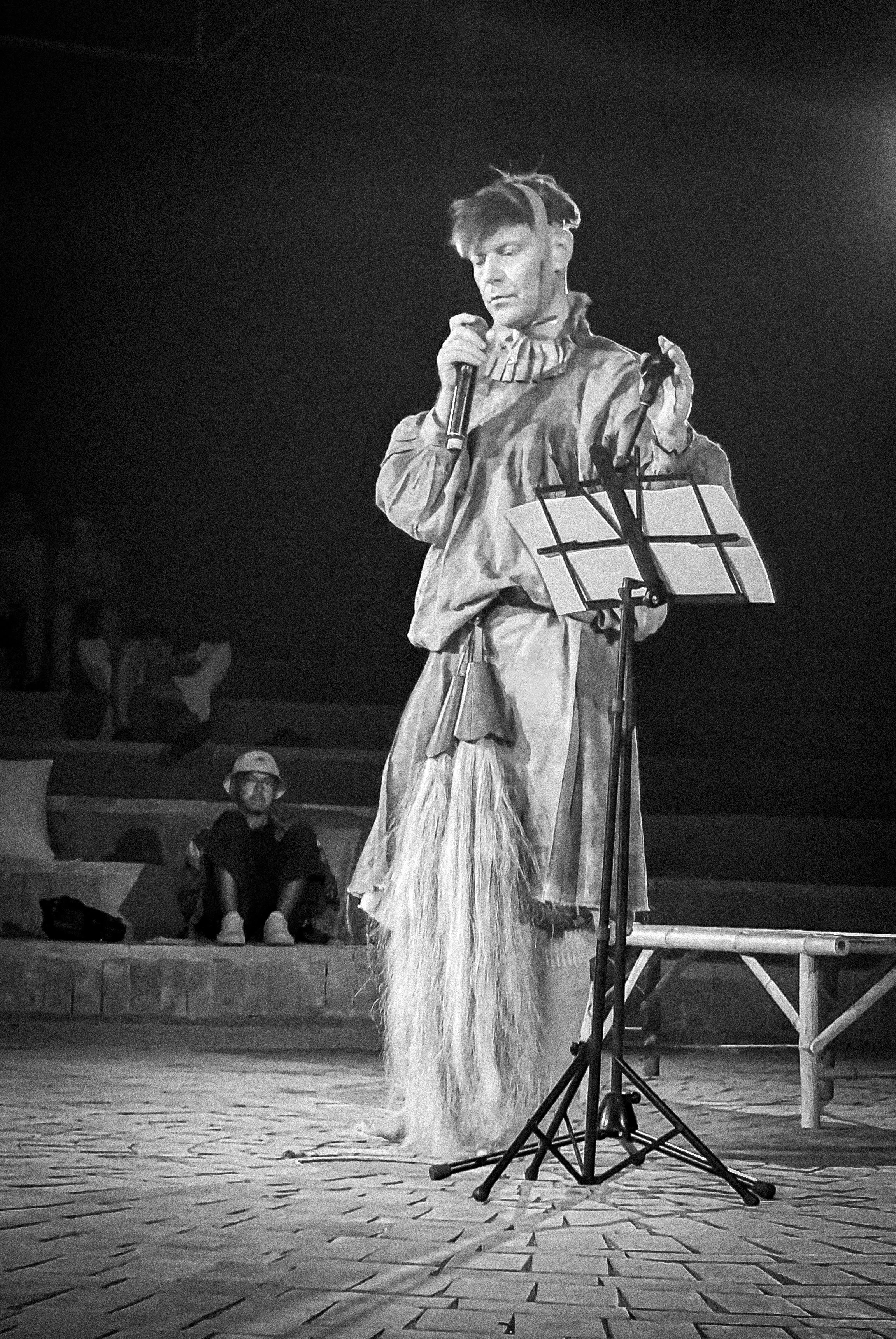
Heckler
2023, dur. 40 mins.
Photo by Donald Milne
Premiered at Wonderfruit festival, Thailand, December 2023, as part of a three-day live arts and artists’ moving image programme called ‘Unconditional Space’.
Listen to a short excerpt below. The full 40-minute instrumental track (without live vocals) can be heard here.
Heckler is a performance and sound installation in praise of heckling, its cultural history, and its social and sonic connections with hair.
The piece imagines a mischievous figure called the Heckler as a disruptive yet ultimately benevolent spirit who sneaks among crowds wherever they gather to hear someone speak or sing in public. There, the Heckler whispers into people’s ears inciting them to boo and hiss, or even throw objects at the stage, such as eggs, fruit, soda cans and shoes.
The title and themes draw from the folk history of the heckle (also spelled ‘hackle’ or ‘hatchel’), a comb-like tool used in Scottish and Irish rural communities and later in textile mills to split and straighten the rough fibres of flax and hemp before spinning and weaving them into cloth. The figurative use of the word heckle—meaning to tease, interrupt or criticise a speaker, performer or event—also has its roots in Scotland and specifically my hometown of Dundee: Winston Churchill, who was the Liberal MP in the city until 1922, was famously heckled by Dundee’s inhabitants, including by Irish suffragette Mary Maloney who, during the by-election of 1908, rang a large bell to drown out Churchill’s voice whenever he tried to speak in public. The heckler potentially performs a social healing function therefore, challenging political authority and expressing dissent by shouting, shushing and making noise.
Flax heckle, Upland, Sweden, ca.1800.
Heckling spreadboard, Northern Ireland, ca.1850.
The performance starts with a bald, semi-nude figure entering the stage before donning a stained form of traditional Highland dress which includes an oversized sporran with two bushy blonde low-hanging tassels. The outfit is completed with a flattened wig tied beneath the chin with a piece of gum tape. At various points throughout the performance, the Heckler enters into the audience, picking out individuals whom he kindly teases before inviting them to comb his hairy sporran with a pair of tuning forks which he keeps down his knee-socks.
A gently pulsing instrumental soundtrack combines acoustic instruments with close-mic recordings of scissors and the swishing sounds of brushing hair reminiscent of ASMR video culture. Sung and spoken vocals weave together several vignettes that connect the history of heckling with the sounds of hair in folklore, mythology and music: Gaelic ‘waulking songs’ (traditionally sung by Scottish women when beating newly woven tartan cloth); the hissing and snarling snake-hair of Medusa; and the whinnying of white horsehair bows typically used in string orchestras imagined as a herd of ghosts galloping through the frozen boreal forests of Siberia.
The music concludes with a seven-minute electronic song composed using sound therapy tuning forks and modular synthesiser which, initially tangled and out-of-sync, gradually falls in-time as things slowly get ‘worked out’. The performance ends with the Heckler disrobing and walking off stage naked again whilst holding up the tuning forks at the audience as if ‘flicking the Vs’ over foley recordings of crowds laughing and jeering.
Performing Heckler at Wonderfruit festival, Thailand, December 2023. Photo by Ross Logie.
Words and music
Siôn Parkinson
Additional music and mastering
Sam Annand
Costume design
Niki Taylor and Kelly Espindola
Wig
Philip Parkinson
Photography
Donald Milne
Curator
Francesca Bertolotti-Bailey for Wonderfruit Festival 2023
Additional support
British Council in Thailand
Thanks
Ross Logie, Helen and Charlie at Mallon Linen, Bow Wasinondh and the team at Scratch First,
Ab Rogers and Raimundas Malašauskas
© Siôn Parkinson 2024, all rights reserved



